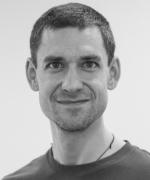About
Stefan Wrzaczek studied Technical Mathematics at the Vienna University of Technology, where he joined the research group for Operations Research and Control Systems (ORCOS) in 2005. He was awarded with the Bank Austria Creditanstalt Award for Operations Research 2005 for his dissertation. He has worked at the Vienna University of Technology, the University of Vienna and the Vienna Institute of Demography (Austrian Academy of Sciences).
Stefan Wrzaczek joined the IIASA Economic Frontiers (EF) Program in 2021, to work on the mathematical formulation of recent economic problems (disruptive changes, COVID-19, health economics). He has been (co-)leading the Austrian Science Fund (FWF) stand-alone projects 'Changing market structures in intertemporal optimization' (2013-2015) and 'life-cycle behaviour in the face of large shocks to health' (2018-2021). He is co-leader of the working group on 'Optimal control and dynamic games' of the Austrian Society for Operations Research (OGOR). His research interests include: (i) applications of optimal control theory (in particular with respect to age-structure and switching systems), (ii) applications of differential game theory, (iii) health economics, and (iv) population dynamics.
He has published among other journals in the Journal of Economic Theory, PLoS ONE, Theoretical Population Biology, European Journal of Operational Research, Journal of Optimization Theory and Applications and Dynamic Games and Applications.
Areas of Expertise
- Optimal control
- Health economics
- Modeling population dynamics
Curriculum Vitae
Contact
Affiliation: IIASA E-Mail: [email protected]
Phone: +43(0) 2236 807 459
Other Resources
The Wittgenstein Centre aspires to be a world leader in the advancement of demographic methods and their application to the analysis of human capital and population dynamics. In assessing the effects of these forces on long-term human well-being, we combine scientific excellence in a multidisciplinary context with relevance to a global audience. It is a collaboration among the Austrian Academy of Sciences (ÖAW), the International Institute for Applied Systems Analysis (IIASA) and the University of Vienna.

